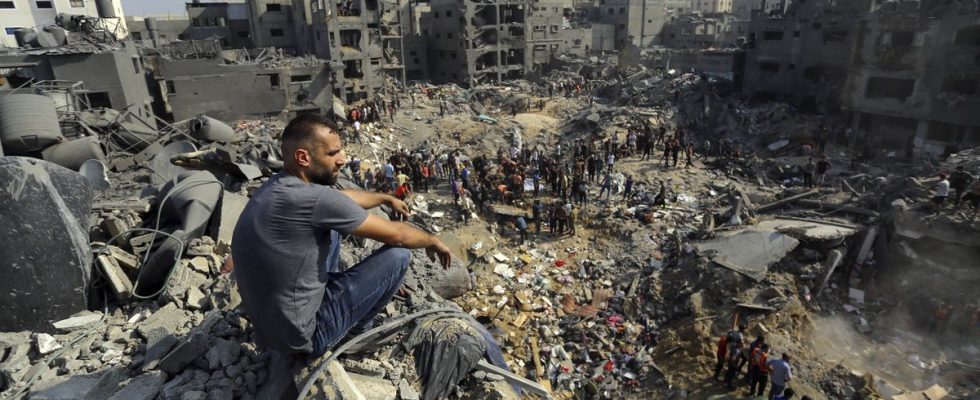“Given the high number of civilian casualties and the scale of destruction following the Israeli airstrikes on the Jabaliya refugee camp (Gaza Strip), we seriously fear that these are disproportionate attacks that could be war crimes,” the UN Office of the High Commissioner for Human Rights wrote on X on November 1.
On the ground, bombed twice on Tuesday and Wednesday by Israel, the Palestinian refugee camps suffered significant material damage, and dozens of civilian deaths were recorded according to Hamas. Israel, for its part, announced that it had targeted a Hamas commander, Ibrahim Biari, presented as one of those responsible for the bloody attack of October 7.
When we talk about war, international law is often broken. But who condemns and on what grounds?
Protect civilians and prisoners
“War crime”, “crime against humanity” or “genocide”: all these names are, in reality, violations of humanitarian law. Mainly codified by the Geneva Conventions of 1949 and their additional protocol of 1977, it is international humanitarian law which governs conflicts, its aim being to protect certain people, “those who do not participate in the fighting – civilians – or who no longer participate in it – the prisoners,” specifies Aymeric Elluin, Amnesty International France advocacy officer.
And if in an armed conflict, civilians and civilian structures must be spared, the death of the latter does not in itself constitute a war crime. So concretely, what are the rules?
In the video at the top of this article, “ 20 minutes » summarizes international humanitarian law with Aymeric Elluin, Amnesty International France advocacy officer.

